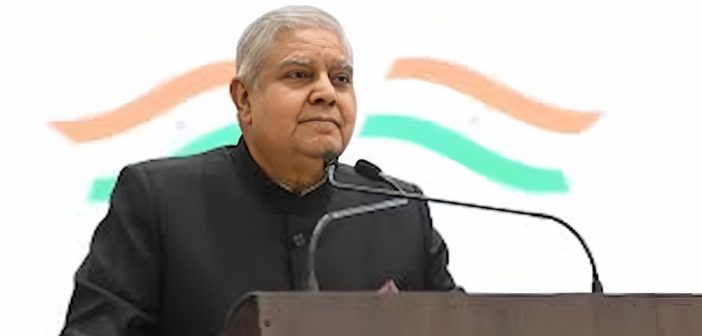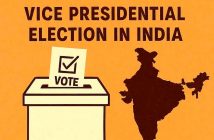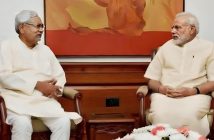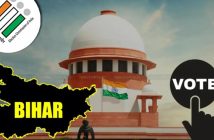In a stunning move, Vice President Jagdeep Dhankhar resigned abruptly, citing health concerns. His unannounced visit to Rashtrapati Bhavan sparked political intrigue. Was it truly health-related, or are deeper political rifts at play? As the Monsoon Session begins, his exit raises questions about the BJP’s internal dynamics and the future of the Rajya Sabha. Opposition leaders demand clarity, while speculation swirls around a possible rift with the government. What led to this dramatic resignation, and what’s next for Dhankhar and Indian politics? Dive into the unfolding mystery.
On July 21, 2025, India’s political landscape was shaken by the sudden resignation of Vice President Jagdeep Dhankhar, who stepped down due to health concerns. The Jagdeep Dhankhar resignation, announced after an unscheduled visit to Rashtrapati Bhavan, sent shockwaves through Delhi’s political corridors. As the ex-officio chairman of the Rajya Sabha, Dhankhar’s exit on the first day of the Monsoon Session raised eyebrows. While he attributed his decision to medical advice, opposition leaders and analysts speculate that there are deeper political motives behind it. This article examines the reasons, reactions, and consequences of this unprecedented move, analysing its impact on governance and the BJP’s strategy.
Official Reason for Resignation
Jagdeep Dhankhar’s resignation letter, addressed to President Droupadi Murmu, cited health concerns as the primary reason for stepping down. He stated, “To prioritise health care and abide by medical advice, I hereby resign as Vice President of India, effective immediately, by Article 67(a) of the Constitution.” Dhankhar, aged 74, expressed gratitude to President Murmu for her support and described their working relationship as “soothing and wonderful.” He also thanked Prime Minister Narendra Modi and the council of ministers for their cooperation. The resignation was formally accepted by President Murmu and notified by the Union Home Ministry on July 22, 2025.
Despite the official narrative, questions linger about whether health was the sole factor. Dhankhar’s abrupt decision, coupled with his unannounced visit to Rashtrapati Bhavan, suggests the move may not have been entirely voluntary. The lack of prior hints and the timing—on the first day of the Monsoon Session—fuelled speculation about underlying pressures.
Political Context of the Resignation
Jagdeep Dhankhar assumed office as Vice President in August 2022, after serving as the Governor of West Bengal. As Vice President, he also served as the ex-officio chairman of the Rajya Sabha, a role that placed him at the heart of India’s parliamentary proceedings. His tenure was marked by frequent clashes with opposition parties, particularly over issues like the farmers’ protests and parliamentary suspensions. In December 2024, he faced a no-confidence motion from the opposition, a rare challenge for a Vice President, highlighting the polarized atmosphere in the Rajya Sabha.
The Jagdeep Dhankhar resignation came amidst a tumultuous political environment. The Monsoon Session, which began on July 21, 2025, was already fraught with tension due to an impeachment motion against Allahabad High Court’s Justice Yashwant Varma, backed by 68 opposition MPs. Dhankhar’s decision to admit this motion reportedly caused friction with the BJP-led government, which preferred to handle the matter in the Lok Sabha. This disagreement, coupled with the absence of key ministers from a Business Advisory Committee (BAC) meeting he convened, hinted at strained relations with the ruling party.
Speculated Reasons Behind the Move
While Dhankhar cited health reasons, opposition leaders and political analysts suspect that there are deeper political motives. Congress general secretary Jairam Ramesh claimed there were “far deeper reasons” for the resignation, pointing to the absence of Union Minister JP Nadda and Parliamentary Affairs Minister Kiren Rijiju from the BAC meeting on July 21. Ramesh suggested Dhankhar was not informed of their absence, which he took as a deliberate slight. Shiv Sena (UBT) leader Sanjay Raut went further, alleging a “big political churn” was underway, predicting significant developments by September.
A post on X by TMC MP Kalyan Banerjee claimed Dhankhar was “forced to resign” under threat of an impeachment motion if he did not step down by 9 pm on July 21. Though unverified, this claim intensified speculation of internal BJP pressure. Additionally, Dhankhar’s decision to examine the opposition’s notice for Justice Varma’s impeachment reportedly irked the government, as it preferred a unified NDA approach. The swift acceptance of his resignation by Rashtrapati Bhavan, gazetted at 1:11 pm on July 22, further fueled theories of an orchestrated exit.
Statements and Reactions
Dhankhar’s resignation letter expressed pride in India’s economic progress and global rise during his tenure. He thanked MPs for their warmth and trust, calling his time as Vice President a “privilege.” However, reactions from political leaders painted a complex picture. Prime Minister Narendra Modi’s response, posted on X at 12:13 pm on July 22, was notably brief: “Jagdeep Dhankhar has got many opportunities to serve our country in various capacities, including as Vice President of India. Wishing him good health.” Opposition leaders, including Congress’s Gaurav Gogoi, criticized the “terse” tone, suggesting it reflected political tensions.
Congress leader Mallikarjun Kharge, the Leader of the Opposition in the Rajya Sabha, remarked, “Only he knows the reason. It is up to the government to accept his resignation or not.” Mamata Banerjee, West Bengal’s Chief Minister, expressed skepticism about the health narrative, noting Dhankhar “seemed healthy and fine.” Samajwadi Party chief Akhilesh Yadav also questioned the stated reason, adding to the chorus of doubt. Union Minister Ramdas Athawale, however, praised Dhankhar’s contributions, calling him a “serious, disciplined person” whose health had been poor recently.
Impact on Governance and BJP Strategy
The Jagdeep Dhankhar resignation leaves the Vice President’s office vacant, necessitating an election by September 19, 2025, as announced by the Election Commission. As Rajya Sabha chairman, Dhankhar played a pivotal role in managing parliamentary proceedings. His exit disrupts the Upper House’s functioning, especially during the Monsoon Session, with Deputy Chairman Harivansh stepping in temporarily. The resignation also raises questions about the BJP’s leadership strategy ahead of upcoming elections, as the party must now select a new candidate for the post of Vice President.
Speculation surrounds potential candidates, with names like Rajya Sabha Deputy Chairman Harivansh and Minister of State for Agriculture Ram Nath Thakur being discussed. The BJP-led NDA is reportedly considering a nominee from backward communities to strengthen its electoral base. Dhankhar’s resignation also highlights internal party dynamics, as his Janata Dal roots and perceived “outsider” status within the BJP may have contributed to his exit, mirroring the experiences of other former JD leaders, such as Satyapal Malik.
Public and Expert Analysis
Public sentiment, as reflected in posts on X, ranges from shock to skepticism. Many users echoed claims of forced resignation, with unverified posts alleging that Dhankhar questioned a senior BJP leader about “Op Sindoor,” adding to the intrigue. Political analysts view the resignation as a sign of deeper rifts within the BJP, particularly over Dhankhar’s handling of the Justice Varma impeachment motion. Experts suggest his exit could embolden the opposition, which has already capitalized on the event to demand transparency from the government. The polarized reactions underscore the contentious nature of Dhankhar’s tenure, marked by confrontations over parliamentary discipline and judicial matters.
Future Outlook for Dhankhar
Dhankhar’s next steps remain unclear. At 74, he may opt for retirement, focusing on his health, as stated in his resignation letter. However, his political journey—from a Janata Dal leader to West Bengal Governor and Vice President—suggests he could remain active in public life. Some analysts speculate he might take on an advisory role or return to legal practice, given his background as a senior advocate. Others believe he could follow the path of predecessors like Satyapal Malik, potentially speaking out against the BJP if tensions persist. For now, Dhankhar has remained silent beyond his resignation letter, leaving his plans open to speculation.
Conclusion
The Jagdeep Dhankhar resignation marks a pivotal moment in Indian politics, raising questions about health, political pressures, and the BJP’s internal dynamics. While Dhankhar cited medical reasons, the timing, his unscheduled visit to Rashtrapati Bhavan, and opposition claims suggest possible friction with the ruling party. His exit disrupts Rajya Sabha proceedings and forces the NDA to strategize swiftly for a new Vice President. As speculation swirls, the nation watches for clarity on what drove this dramatic decision and what lies ahead for Dhankhar and the BJP.




